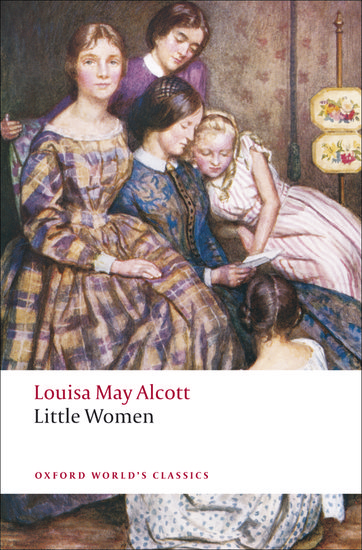
By Kirsty Doole
As Mother’s Day approaches in the United States, we decided to reflect on some of the mothers to be found between the pages of some of our classic books.
Pride and Prejudice by Jane Austen
Mrs Bennet is surely one of the best-known mothers in English literature. She has five girls to raise, and is determined to make sure they marry well. So, in one memorable scene when Elizabeth turns down a proposal from the perfectly respectable Mr Collins, she is beside herself and goes straight to her husband to make sure he demands that their daughter change her mind. However, it doesn’t go quite to plan:
‘Come here, child,’ cried her father as she appeared. ‘I have sent for you on an affair of importance. I understand that Mr Collins has made you an offer of marriage. Is it true?’ Elizabeth replied that it was. ‘Very well–and this offer of marriage you have refused?’
‘I have, sir.’
‘Very well. We now come to the point. Your mother insists upon your accepting it. Is it not so, Mrs Bennet?’
‘Yes, or I will never see her again.’
‘An unhappy alternative is before you, Elizabeth. From this day you must be a stranger to one of your parents. Your mother will never see you again if you do not marry Mr Collins, and I will never see you again if you do.’
Elizabeth could not but smile at such a conclusion of such a beginning, but Mrs Bennet, who had persuaded herself that her husband regarded the affair as she wished, was excessively disappointed.
Little Women by Louisa M. Alcott
Mrs March – or Marmee, as she is affectionately known by her daughters – is basically the perfect mother. She works, she helps charity, she contributes to the war effort, all at the same time as being a loving mother to her girls, not to mention keeping the house looking beautiful. She is strongly principled, supported by her rock-steady faith, and despite at one point admitting that she used to have a bit of a temper, never appears to be angry. Most strikingly for the time at which it was written, though, she ensures that her daughters get an education, and encourages them to make decisions for themselves, rather than marrying at the earliest opportunity.
Hamlet by William Shakespeare

Hamlet’s mother, Gertrude, causes deep resentment in her son when she swiftly married his uncle Claudius after the death of Hamlet’s father. However, despite the fact that Hamlet sees her as a living example of the weakness of women, she continues to watch over him with affection and concern. The relationship between Hamlet and Gertrude has been the subject of much academic debate. One famous reading of the relationship was by the psychoanalyst Ernest Jones, who in the 1940s published a collection of essays on what he saw as Hamlet’s Oedipal impulses.
The Yellow Wall-Paper by Charlotte Perkins Gilman
In The Yellow Wall-Paper our narrator is a young mother suffering from depression. In a controversial course of treatment she is separated from her son and denied the opportunity to even read or write. She is forced to spend her time locked in a bedroom covered in yellow wallpaper, in which she starts to see a figure moving as her madness tragically develops.
Bleak House by Charles Dickens
Mrs Jellyby might be a relatively minor character in Dickens’ mammoth novel, but she is definitely memorable. She has a husband and several children – most notably her daughter Caddy – but devotes her time to Africa’s needy. She spends all day writing letters and arguing for their cause, but all the time forgetting the saying “charity begins at home” and is blind to the fact that her own family is suffering badly from neglect.
Esther Waters by George Moore
Esther Waters is a young, working-class woman with strong religious beliefs who takes up a job as a kitchen-maid. She is seduced and abandoned, and forced to support herself and her illegitimate child in any way that she can. The novel depicts with extraordinary candour Esther’s struggles against prejudice and injustice, and the growth of her character as she determines to protect her son. James Joyce even called Esther Waters ‘the best novel of modern English life’.
Kirsty Doole is Publicity Manager for Oxford World’s Classics.
For over 100 years Oxford World’s Classics has made available the broadest spectrum of literature from around the globe. Each affordable volume reflects Oxford’s commitment to scholarship, providing the most accurate text plus a wealth of other valuable features, including expert introductions by leading authorities, voluminous notes to clarify the text, up-to-date bibliographies for further study, and much more. You can follow Oxford World’s Classics on Twitter, Facebook, or here on the OUPblog. Subscribe to only Oxford World’s Classics articles on the OUPblog via email or RSS.
Subscribe to the OUPblog via email or RSS.
Subscribe to only literature articles on the OUPblog via email or RSS.
Image credit: Hamlet and his Mother by Eugene Delacrois. Public domain via Wikimedia Commons


Recent Comments
There are currently no comments.